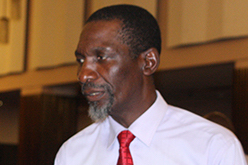A former government minister has criticised the government for failing to fully implement devolution, which he claims has led to the deployment of non-local language-speaking teachers in Matabeleland.
Moses Mzila Ndlovu, former minister of national healing and integration in the Government of National Unity and ex-Bulilima West MP, argued that had devolution been fully implemented, local communities could have enrolled in teacher training colleges within their regions.
Ndlovu highlighted concerns over a disproportionate number of teachers unable to speak local languages like Ndebele, which he believes restricts educational opportunities for children.
His comments follow the controversy sparked by the dismissal of former deputy Minister of Higher and Tertiary Education, Simelisizwe Sibanda, for relocating a non-Ndebele speaking teacher from a Matabeleland North school.
Speaking on This Morning on Asakhe, a CITE X space current affairs programme on Tuesday, Mzila said the sacked deputy minister was voicing a widely held view in Matatebeland, where locals were frustrated by the “importation” of personnel who did not understand the local language but were meant to deliver services locally.
“People in Zanu PF realise the grievance of Matabeleland but there’s no room in fact to deal with those grievances,” he said.
As a former teacher who taught at Hillside Teachers College and Gwanda ‘ZimTech’ College, Ndlovu believes that if a teacher wants to connect with students, especially at the start of school, they must use their first language.
“When introducing education, a teacher must use the language the child is exposed to in the home. We are not born with that language but we are born with a faculty to learn the language. If you live in one area and speak a certain language that language becomes an asset, so you use that asset to connect to learners,” he said.
“If you don’t use our languages, children will suffer in terms of educational provision.”
Ndlovu noted that there used to be teachers’ colleges locally, citing one in Thekwane that was attached to the primary school, another in Mtshabezi and another at Usher schools.
“There were so many teachers colleges that would cater for the training of teachers and deployment of these teachers in the neighbourhood. There was no issue of children struggling and that was very important. Now, however, we are told every year of the disconnect between children and teachers,” he noted.
According to the former MP, if devolution had been implemented, more local teacher training colleges would have been created that would enrol more locals.
Ndlovu added that devolution would have seen more resources channelled to schools to improve their conditions.
“When you implement devolution, you cede power to locals. Go to Binga, what is the condition of schools there? Are they able to produce students who can enrol at the United College of Education (UCE)? If those children are learning in shacks, they will not be able to compete for the few positions that are there in teaching schools,” Nldovu said.
Ndlovu added that even Zanu PF policies regarding recruitment and staffing were skewed, as he claimed that “before 1990, one hardly found a Ndebele-speaking person heading colleges.”
“This was a deliberate policy to deprive locals of manning these institutions, locals, who come from local areas. Devolution didn’t come with this constitution, it was called decentralisation before but was still not done,” said the former minister.
“If you trace this problem, start with conditions of schools, then for enrollment, advertise the positions, you will be shocked that the list submitted has children from outside. This used to happen when I taught at Hillside, a third of the list of students would be submitted by Zanu PF. This accounts for disproportionate numbers of teachers to Ndebele speakers, further reducing numbers of children who have access to higher education colleges.”
The former minister also said there were a broad spectrum of reasons why the Zanu PF government is not keen to implement devolution.
“There’s this fear that if you allow people to be free they will not be usable in the ill of things that the current government is envisioning because it is in their vision that there is a complete absence of an acceptance of the existence of a variety of ethnic regional groups,” Ndlovu claimed.
“People who are willing to build the nation of Zimbabwe have been treated extremely badly by this Zanu PF government since 1980. The attitude towards other ethnic groups besides the Shona people is such that ‘you are vassals, you are nothing’ and we hear historically people want to fish from a distorted history that people don’t belong here.”
Ndlovu added this was surprising because most of the people in Zimbabwe live in their ancestral land.
“Whether it be Nambya, Tonga or Venda, people live in their ancestral lands. I don’t understand why the Zanu Pf government, which believes its power is derived from the Shona group that they see as a majority in Zimbabwe, should feel threatened by people in Matabeleland enjoying the same kind of privileges and rights.”

